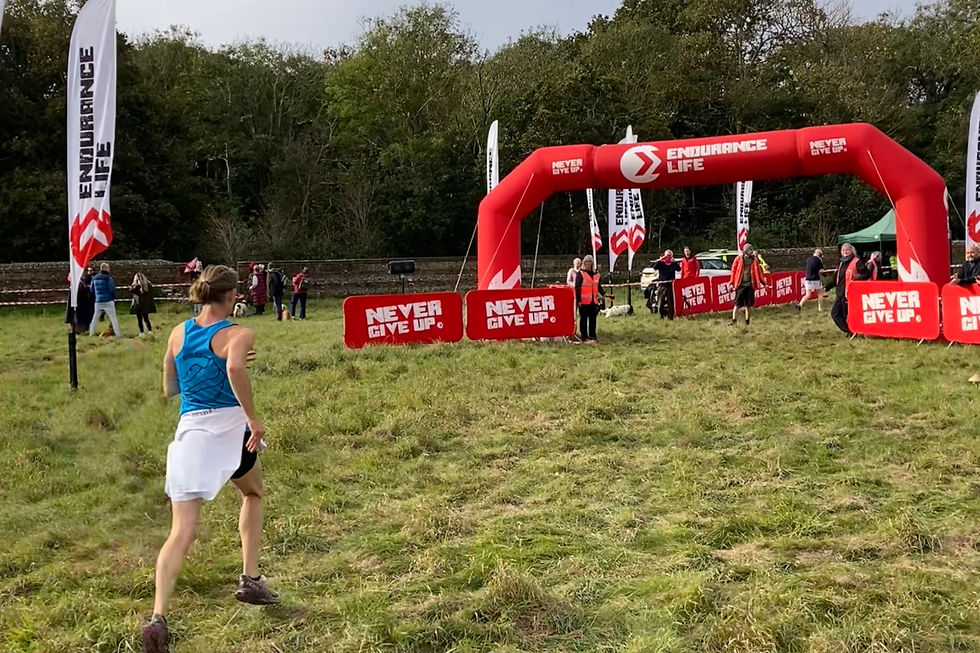Eating for exercise: What and when?
- Mary Brooking

- Jun 2, 2022
- 4 min read

What food fuels us?
Our muscles use carbohydrates or fat as their fuel, with an even mix between the two being used at low intensities and high intensity exercise using almost solely carbohydrate as fuel. Our brains only ever use carbs as their energy source. All bodies have almost limitless stores of fat, but carbohydrate can only be stored in limited amounts; as glycogen in the liver or muscles or as blood glucose.
Fuelling requirements vary
A short, low intensity workout probably doesn’t require any special fuelling, just ensuring hydration is maintained. Long, high intensity sessions need the most pre, during and post workout fuelling as they will be using significant amounts of carbohydrate, and the body’s limited storage capacity needs to be replenished to keep fuelling muscle and brain activity.
What and when?
Composition of food should change depending on how close to exercise it’s eaten. Fibrous and fatty foods take longer to digest than carbohydrates. 3 hours before exercise you can have a normal meal, sized proportional to exercise demand. If eating closer to 2 hours before exercise make your food lower in fat and fibre than normal, so it's digested before exercise starts.
Avoid eating 20-60mins before exercise
When you start exercising the body moves blood away from the digestive tract to working muscles so if there’s undigested flood in your stomach its just going to sit there while during the activity. This will be less of an issue in easy, slow intensity workouts than harder efforts as less blood is shifted from digestion to muscle activity, but could cause discomfort in high intensity workouts. High Glycaemic Index (GI) foods e.g. sugar or white rice, generate an insulin response in the body, meaning the glucose from the food is pulled out of the bloodstream to store in muscles and liver. If this process is happening just as exercise starts, with its own demand on blood glucose, levels can plummet and you end up with a blood sugar crash, just when you need them to be high to fuel activity. If you know you haven’t fuelled adequately an hour before exercise wait and eat something you know doesn’t cause you any gut issues immediately before, or just after you start, exercising when the body doesn’t have the same insulin response to these foods.
Little & often during exercise
Sip fluids every 5-10mins, have a little bite of sometime every 15-20 mins during exercise so you don’t have a lot of food or liquid in stomach at any one time. Food should be high GI carbs rather than fatty or fibrous food to aid easy digestion. Different sugars use different transporters in gut, by including both fructose and glucose in foods you eat during exercise your body can transport more total sugars into the blood in a period of time, keeping fuelling high intensity activity for longer. Commercial bars all contain this mix of sugars, its also found in dates and bananas. It is possible to train your gut to transport more carbohydrate while exercising by practising eating when exercising, valuable if you are doing long events as depletion of carbohydrate stores is reduced so high intensity activity can continue for longer.
Don’t wait to be hungry
There is a time lag between eating something and it hitting your blood stream. Have a fuelling plan for a long activity, based on exercise intensity and duration and stick to it. It’s particularly important to avoid dehydration if you are refuelling during an activity as this slows the ability of the body to digest food and deliver its energy to muscles.
How much? It depends...
Fuelling requirement during exercise varies based on what fuelling was beforehand and what exercise is planned is for the following day. If well fuelled beforehand then maybe need you will less during a session compared to starting an activity without any fuelling. If you have more activity planned for the next day it’s important to fuel for tomorrow, don't leave glycogen levels too depleted at the end of a session for them to be restored by the following day. If the body’s glycogen stores are fully depleted it can take 2-3 days to replenish them, even if eating a lot.
What about after exercise?
There’s a window of time after exercising where eating is particularly effective at replenishing muscle glycogen supplies as blood transporters that open up to allow blood glucose to be taken into muscles and be used for fuel are still active. Plan for this by having some high GI food immediately post exercise, or while still cooling down e.g. fizzy drinks or white rice, and then have lower GI food later in the refuelling process. Combining some protein with post activity carbs leads to greater glycogen replenishment in muscles and helps the body recover more quickly by increasing the rate of protein synthesis to muscle; a good ratio is 4:1 carbs to protein.
Have a plan
You’re likely to be tired after activity intense and long enough to need significant refuelling; have recovery food available that’s easy and prepared in advance. Refuelling after long, high intensity activity will be immediately post exercise, and then a meal and also possibly snacks. Refuelling doesn’t need to be as intense if exercise fuelling was good and glycogen levels aren’t depleted, or if not planning more long, high intensity sessions in the next few days.
What works for you?
Nutrition is very individual, see what works for you during training sessions, don’t leave it until race day to experiment. Try during both low intensity sessions and high intensity sessions, it’s likely you'll need different strategies for different types of workout






Comments